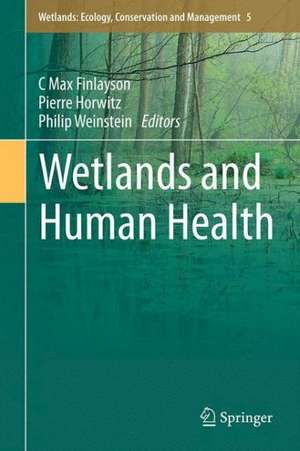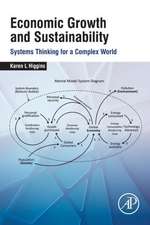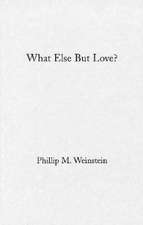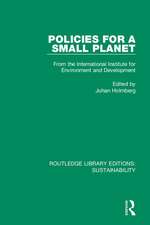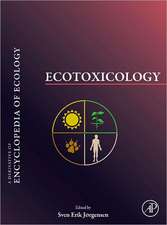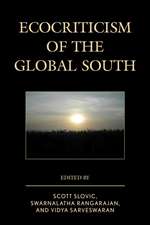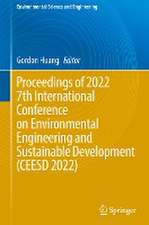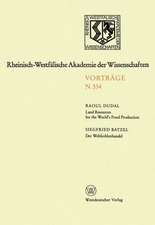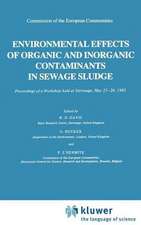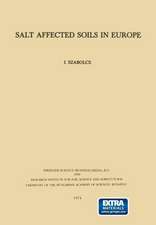Wetlands and Human Health: Wetlands: Ecology, Conservation and Management, cartea 5
Editat de C Max Finlayson, Pierre Horwitz, Philip Weinsteinen Limba Engleză Hardback – 13 aug 2015
| Toate formatele și edițiile | Preț | Express |
|---|---|---|
| Paperback (1) | 582.95 lei 6-8 săpt. | |
| SPRINGER NETHERLANDS – 23 oct 2016 | 582.95 lei 6-8 săpt. | |
| Hardback (1) | 645.60 lei 6-8 săpt. | |
| SPRINGER NETHERLANDS – 13 aug 2015 | 645.60 lei 6-8 săpt. |
Preț: 645.60 lei
Preț vechi: 759.54 lei
-15% Nou
Puncte Express: 968
Preț estimativ în valută:
123.53€ • 129.33$ • 102.22£
123.53€ • 129.33$ • 102.22£
Carte tipărită la comandă
Livrare economică 05-19 aprilie
Preluare comenzi: 021 569.72.76
Specificații
ISBN-13: 9789401796088
ISBN-10: 9401796084
Pagini: 261
Ilustrații: XII, 263 p. 31 illus., 24 illus. in color.
Dimensiuni: 155 x 235 x 22 mm
Greutate: 0.56 kg
Ediția:1st ed. 2015
Editura: SPRINGER NETHERLANDS
Colecția Springer
Seria Wetlands: Ecology, Conservation and Management
Locul publicării:Dordrecht, Netherlands
ISBN-10: 9401796084
Pagini: 261
Ilustrații: XII, 263 p. 31 illus., 24 illus. in color.
Dimensiuni: 155 x 235 x 22 mm
Greutate: 0.56 kg
Ediția:1st ed. 2015
Editura: SPRINGER NETHERLANDS
Colecția Springer
Seria Wetlands: Ecology, Conservation and Management
Locul publicării:Dordrecht, Netherlands
Public țintă
Professional/practitionerCuprins
Wetlands as settings for human health – the benefits and the paradox.- 2. Public health perspectives on water systems and ecology.- 3. Wetlands, well-being, food security and medicinal products.- Wetlands as sites of exposure to infectious diseases.- Wetlands as sites of exposure to pollution and toxicants.- Healthy wetlands, healthy people: mosquito borne disease.- Wetlands as livelihoods and contributions they make to health and well-being.- Wetlands and health: how do urban wetlands contribute to community well-being?.- Wetlands as places that help absorb the damage of natural disasters.- Interventions required to enhance human well-being by addressing the erosion of ecosystem services in wetlands.- Wetland wise use and human health – guidance for wetland.- A synthesis of the benefits and paradoxes of wetlands as settings for human health.
Recenzii
“The volume emphasizes an ecosystemapproach that ties the well-being of humans–individuals and populations–towater bodies that in fact provide a wealth of ecological services, bothnecessities and luxuries. … The social importance of wetlands is emphasizedthroughout. … Summing Up: Recommended. All readers.” (M. Gochfeld, Choice, Vol.53 (5), January, 2016)
Textul de pe ultima copertă
The book addresses the complex interactions that occur between wetlands and the health and well-being of people. As wetlands provide many valuable ecosystem services and are amongst the most degraded ecosystems globally, further degradation could greatly affect the wellbeing and health of people dependent on them. Healthy wetlands are generally associated with enhanced ecosystem services and improved outcomes for human health, and unhealthy wetlands with degraded ecosystem services and poor outcomes for human health. However, the relationships can also be paradoxical with some direct benefits for human health leading to the loss of other ecosystem services, in particular regulating and supporting services, and the enhancement of others, leading to poor outcomes for human health. This results in a health paradox whereby there is a loss regulating and supporting services from steps to enhance human health. A wetland paradox also occurs when there are poor outcomes for human health asa consequence of the maintenance or enhancement of ecosystem services.
In response a framework for the conceptualisation of human and wetland relationships, including the paradoxical situations has been provided based on the concept of wetlands as settings for human health. This enables the trade-offs that have and will occur between wetland ecosystem services and human health to be addressed. Interventions for managing wetlands can have important implications for human health and well-being, although these may not always be recognised. While the Ramsar Convention has provided an international forum for addressing the wise use of wetlands and providing guidance for managers it has only recently considered the human health implications of wetland management. Through the policy setting provided by the Convention a set of health-related activities have been identified and in this paper mapped against the wise use guidance previously provided.
Tackling these
problems requires genuine cross-disciplinary collaboration; a key finding of the Millennium Ecosystem Assessment that considered the links between human well-being and ecosystem health. This book brings the disciplines of ecology and health sciences closer to provide a synthesis for researchers, teachers and policy makers interested in or needing information to manage wetlands and human health and well-being issues.
In response a framework for the conceptualisation of human and wetland relationships, including the paradoxical situations has been provided based on the concept of wetlands as settings for human health. This enables the trade-offs that have and will occur between wetland ecosystem services and human health to be addressed. Interventions for managing wetlands can have important implications for human health and well-being, although these may not always be recognised. While the Ramsar Convention has provided an international forum for addressing the wise use of wetlands and providing guidance for managers it has only recently considered the human health implications of wetland management. Through the policy setting provided by the Convention a set of health-related activities have been identified and in this paper mapped against the wise use guidance previously provided.
Tackling these
problems requires genuine cross-disciplinary collaboration; a key finding of the Millennium Ecosystem Assessment that considered the links between human well-being and ecosystem health. This book brings the disciplines of ecology and health sciences closer to provide a synthesis for researchers, teachers and policy makers interested in or needing information to manage wetlands and human health and well-being issues.
Caracteristici
Links ecology-health and the targeting of practitioners and researchers Addresses the environmental health problems of the 21st Century by moving outside of the traditional tools of ecologists or epidemiologists working in their respective disciplinary silos Brings together the disciplines of ecology and health sciences in a synthesis for researchers, teachers and policy makers interested in or needing information to manage wetlands and human health and well-being Includes supplementary material: sn.pub/extras
